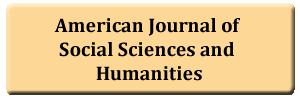Laboratory practical interest as a correlate of students’ perceived competence and academic performance in practical chemistry
DOI:
https://doi.org/10.55284/ajel.v10i1.1459Keywords:
Laboratory practical interest, Perceived competence, Academic performance, Practical chemistry.Abstract
The study examined the correlation between students’ laboratory practical interest and thier perceived competence and academic performance in the context of practical chemistry. The study adopted a correlational research design. Laboratory Practical Interest Questionnaire (LPIQ), Perceived Competence Scale (PCS) and Chemistry Practical Performance Test (CPPT) were the instruments used for data collection. A sample of 179 students drawn from 4 schools in Anyigba, Kogi State, Nigeria was selected using multi-stage sampling techniques. Pearson correlation was used to answer the research questions and null hypotheses that guided the study. The study revealed that there was a significant correlation between students’ laboratory practical interest and perceived competence, particularly in their ability to solve practical chemistry related questions (r =.881, P<0.005). Students who are genuinely interested in laboratory practical are more engaged in active learning because students’ interest fuel their perceived competence, making students more persisted through challenges and put in the necessary effort to learn and achieve higher academic performance in practical chemistry. Thus, science teachers should use innovative learning strategies to foster students’ interest and school authorities should provide infrastructure and 21st century laboratory facilities needed by science teachers to maintain students’ interest in laboratory practical.



